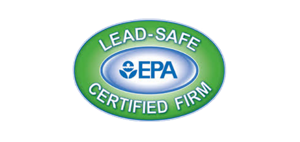Ever wondered why your neighbor’s flood claim was denied, but your burst pipe was covered? Knowing the difference between water damage and flood damage is key. Both involve water, but they’re treated differently by insurance and have their own definitions.
Key Takeaways
- Living close to water makes you more likely to flood.
- Most insurance companies need at least two acres of flooded land for a flood claim.
- Telling flood damage from water damage is key to getting the right insurance.
- Flood insurance isn’t usually part of a standard homeowners policy.
- Floods hit many places or big areas, while water damage is usually from sudden events like a burst pipe.
- Almost no one is fully covered by a standard homeowners policy, showing a big gap in protection.
Defining Water Damage and Flood Damage
Water damage and flood damage are different, and knowing the difference is key for homeowners. Water damage often comes from things like plumbing failures or roof leaks. These are usually covered by homeowners insurance. On the other hand, flood damage means water or mud covering two or more acres of land, as FEMA defines it.
It’s important to know the difference to make sure you have the right insurance. Water damage can be caused by a broken appliance or a burst pipe. But flood damage comes from big events like heavy rain or hurricanes. Standard home insurance doesn’t cover these, so you might need a special rider.
Homeowners in areas at risk for flooding should think about getting this rider. It helps protect against flood damage. This is especially important for those living in high-risk areas.
Water damage and flood damage also have different causes. Sewer or water backup coverage is different from flood damage. Mold damage coverage also depends on the cause of the water damage. But, if the damage happens because of homeowner negligence after a flood, the insurance might not cover it.
Flooded basements can be covered by water damage insurance in some cases. But, if the flooding is from sewage or water coming up from below, you need a special policy for that.
Knowing the difference between water damage and flood damage helps homeowners make better choices. They can choose the right insurance, take steps to prevent mold, and prepare for natural disasters.
Is Water Damage the Same as Flood Damage?
Many people mix up water damage and flood damage, but they’re not the same. They differ a lot, especially when it comes to insurance. Knowing the difference is key for homeowners dealing with insurance claims.
Water damage is usually covered by standard homeowners insurance. It happens from inside issues like burst pipes or overflowing toilets. Insurance often covers damage from things outside your control, like severe rainstorms or hail breaking windows. But, they might not pay if the damage is from things you could have fixed, like a leaky roof.
Flood damage, on the other hand, comes from outside and is caused by natural disasters. The National Flood Insurance Program says a flood is when water covers land that’s usually dry. This can happen from heavy rains, hurricanes, or bad stormwater runoff. Homeowner’s insurance doesn’t cover flood damage, so you need a special flood insurance policy if you live in a flood-prone area.
One thing similarities between water damage and flood damage share is they can both really hurt your property if not fixed fast. But, the main difference is where the damage comes from. Water damage from inside your home is covered by your insurance. You need to fix it right away to avoid more problems. Getting help from a certified water damage restoration company is a good idea.
Flood damage, however, is from outside and needs its own insurance. Flood insurance policies take 30 days to kick in, so you need to buy them early. When looking at insurance, a water damage and flood damage comparison can really help. It shows why you need the right insurance for your home, whether it’s for inside problems or outside disasters. Also, make sure to check your flood insurance policy well, looking at what’s covered, deductibles, and what’s not.
Insurance Coverage Differences
It’s key for homeowners to know the difference between water damage and flood damage insurance. Water damage usually comes from inside, like a broken water heater or a clogged toilet. Most homeowner’s insurance covers these issues if they happen suddenly and by accident.
Flood damage, however, comes from outside, like when rivers overflow or storms cause high tides. This type of damage needs its own insurance policy, often through the National Flood Insurance Program (NFIP). NFIP defines “flood” as when water covers normally dry land areas or properties.
When dealing with flood damage, it’s important to document everything well. Take photos, list damaged items, and wait for an adjuster to check things out. Flood damage often requires more cleaning and repairs than regular water damage.
Homeowners should also check their insurance policies carefully. For example, adding a water/sewer backup endorsement can help with overflow and sewage damage. But, damage from poor maintenance is usually not covered.
Conclusion
Reviewing water damage and flood damage is key for homeowners and business owners. Water damage comes from inside, like burst pipes, and is usually covered by standard insurance. Flood damage, however, affects bigger areas and is often not covered by standard policies.
It’s important to prepare well for water or flood damage. Homeowners need to make sure their insurance covers both. Knowing what your policy does and doesn’t cover is crucial. In flood-prone areas, getting the right insurance is essential to avoid big financial losses.
Homeowners and businesses should manage risks well. This means regular maintenance, emergency plans, and good insurance. By understanding the difference between water and flood damage, you can protect your property. This gives you peace of mind and financial security when disaster strikes.






